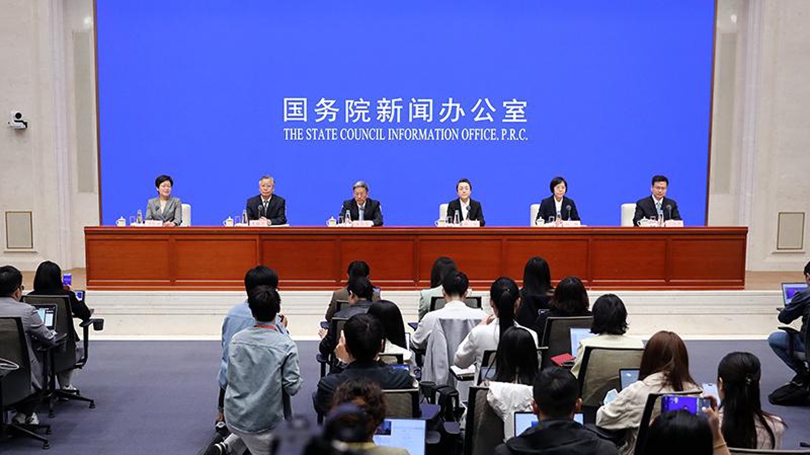China News Service:
The Private Sector Promotion Law has a total of nine chapters and 78 articles with wide-ranging provisions. From the state legislature's perspective, what are this law's outstanding features? Thank you.
Wang Ruihe:
The Private Sector Promotion Law is a specialized standalone law on the development of the private sector. From the perspective of actively building a socialist market economy legal system with Chinese characteristics, it represents an important legislative achievement. As the reporter mentioned, the content is extensive, and relevant departments have conducted publicity campaigns both before and after the law's introduction. The Private Sector Promotion Law, for the first time, stipulates that we will work unwaveringly to both consolidate and develop the public sector and to encourage, support and guide the development of the non-public sector. It promotes the sound development of the private sector and persons in the sector. The law also establishes the status of the private sector for the first time and stipulates that promoting the sustainable, sound and high-quality development of the private sector is a crucial principle and policy that the state has long upheld.
As a law designed to promote and protect, the Private Sector Promotion Law is highly policy-oriented and principled in nature. In terms of content, it can be summarized by four key features:
First, it emphasizes ideological guidance. The Private Sector Promotion Law is guided by Xi Jinping Thought on Socialism with Chinese Characteristics for a New Era and fully implements Xi Jinping Thought on the Economy and Xi Jinping Thought on the Rule of Law. It stipulates that efforts to promote the development of the private sector must uphold the leadership of the CPC, follow a people-centered approach, and adhere to the socialist system with Chinese characteristics. These measures are intended to ensure the correct political direction for the development of the private economy.
Second, it upholds equal treatment. The Private Sector Promotion Law emphasizes equal treatment, fair competition, equal protection and common development to support the growth of the private sector. It ensures that private businesses, along with all other types of economic organizations and market entities, enjoy equal legal status under the law. Our rough count found that the terms "equality," "fairness" and "equal treatment" appear 26 times throughout the law's text, reflecting how the principle of equality is woven into every aspect of efforts to promote the development of the private sector.
Third, it strengthens legal protections. The Private Sector Promotion Law calls for strict, standardized, just and civilized law enforcement. It strengthens protections for the legal rights and interests of private businesses and their operators. The law also encourages, supports and guides the development of the private economy in accordance with the law. The law reinforces legal protections by laying a solid foundation, stabilizing expectations and ensuring long-term benefits.
Fourth, it emphasizes a problem-oriented approach. The Private Sector Promotion Law addresses major issues and shortcomings in the development of the private economy by fully incorporating the results of reforms and practical experience. It refines and improves relevant systems and measures in a targeted way, aims to maximize the decisive role of the market in resource allocation, and seeks to better utilize the role of government. Thank you.
Xing Huina:
Please feel free to raise your hand if you have any questions. We have time for two more questions from reporters.


 Share:
Share: 




 京公網(wǎng)安備 11010802027341號(hào)
京公網(wǎng)安備 11010802027341號(hào)